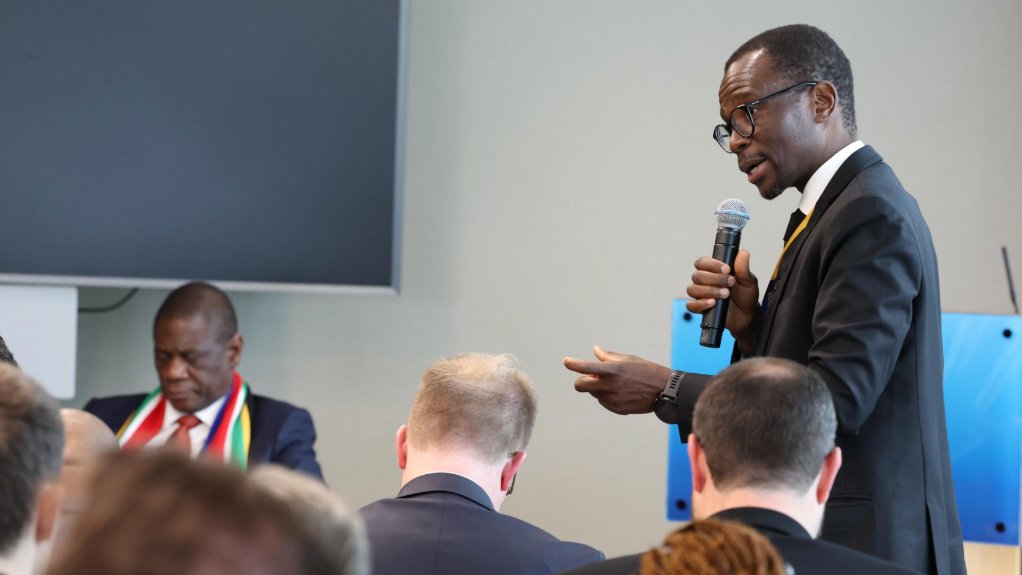South Africa is launching a credit-guarantee facility to boost private sector involvement in the country’s ambitious infrastructure investment plans, reducing the need for public spending.
“We are looking to manage levels of risk associated with projects or project sponsors in attracting private sector financing,” Deputy Finance Minister David Masondo said in an interview on Thursday in London. “The Credit Guarantee Vehicle (CGV) looks to crowd in private sector capital for strategic infrastructure projects.”
Masondo is part of a delegation in the UK presenting South Africa to investors, who’ve sought assurances the country will stay on a path of fiscal consolidation to help preserve improvements in confidence that have underpinned a three-month rally in the rand.
South African President Cyril Ramaphosa said in March that as much as R1.6-trillion in public-sector infrastructure investment and a further R3.2-trillion from the private sector will be needed for the country to achieve its infrastructure goals by 2030.
Finance Minister Enoch Godongwana will focus on the infrastructure strategy when he presents his medium-term budget statement on October 30. The government plans to upgrade the nation’s ports, railways and roads to help revive economic activity — with a goal of 2% growth in 2025 and accelerating thereafter — after a decade of expanding at less than half that pace.
The CGV “will provide credit enhancement in the form of credit guarantees or insurance products to cover risks that the private sector is not prepared to take,” Masondo said, adding that it will cover projects, not entities, and won’t be a funding platform in itself.
South Africa is working on the guarantee with the International Finance Corp, the private-sector lending arm of the World Bank, and the programme will be piloted by Eskom as it begins an aggressive expansion of the national grid over the next decade, Masondo told investors this week.
The State-owned utility plans to invest nearly R400-billion over a decade to build more than 14 000 kilometers of power lines to improve electricity delivery after years of rolling power cuts, and bring more sources of renewable energy online.
Electricity Minister Kgosientsho Ramokgopa separately told reporters in Cape Town on Thursday that the option of using credit-enhancing instruments that don’t rely on a direct sovereign guarantee is being actively explored, without providing further details.
While investors have welcomed controls on public finance, Goldman Sachs Group Economist Andrew Matheny warned that there were limits to how far the country should go, while calling the increase so far in public capital expenditure “pretty disappointing.”
“Spending cuts on the social side have been so across the board that you’re reaching the point where you really are harming service delivery,” Matheny said during the roadshow. “There are some speed limits that probably need to be put in place.”
Masondo would not rule out further cuts, but said protecting front-line services would be a priority. Front-line services include healthcare, transport and education.
“Given the fiscal constraints, there has to be trade-offs,” he said. “We have to abandon certain spending programmes that are not our priority.”
EMAIL THIS ARTICLE SAVE THIS ARTICLE
To subscribe email subscriptions@creamermedia.co.za or click here
To advertise email advertising@creamermedia.co.za or click here











